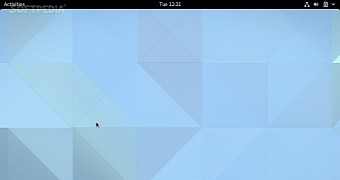November 1, 2016, was an important day on the release schedule of the forthcoming Fedora 25 Linux operating system, as it hit the Final Freeze development stage, leading to significant cut-offs.
The Final Freeze stage is a very important step in the development process of any GNU/Linux distribution, which means that no new packages will be added to the operating system and its current state will be preserved until the final release, but not before it passes all tests for all supported hardware architectures. As usual, during the Final Freeze stage, only critical bug fixes are accepted, and new package versions will be pushed to the stable repos after the OS officially hits the streets.
"Today we have the Final Freeze. This means that only packages which fix accepted blocker or freeze exception bugs will be marked as 'stable' and included in the Final composes," said Jan Kurik, Fedora Program Manager at Red Hat. "Other builds will remain in updates-testing until the Final release is approved, at which point the Final Freeze is lifted and packages can move to the 'updates' repository, pending updates will be pushed before final release as zero day updates."
Fedora 25 Linux could land on November 15, 2016
The Fedora 25 Linux operating system has been in development for the past four months, during which it received one Alpha and one Beta milestone. Rawhide became Fedora 25 on February 23, 2016. Since then, the distro received a single delay due to some critical bugs being present in the Alpha build, and we're now looking at a final release date of November 15, 2016, if no other blockers are found during the Final Freeze two-week period.
Fedora 25 promises exciting new features, among which we can mention better dual-GPU integration in the GNOME 3.22 desktop environment, which is the default for the Workstation edition, by implementing a right-click context menu item to allow users to launch apps or games with the discrete graphics cards, support for Raspberry Pi 2 and Raspberry Pi 3 single-board computers, the latest kernel from the Linux 4.8 series, KDE Plasma 5.8 LTS desktop environment, and much more.

 14 DAY TRIAL //
14 DAY TRIAL //